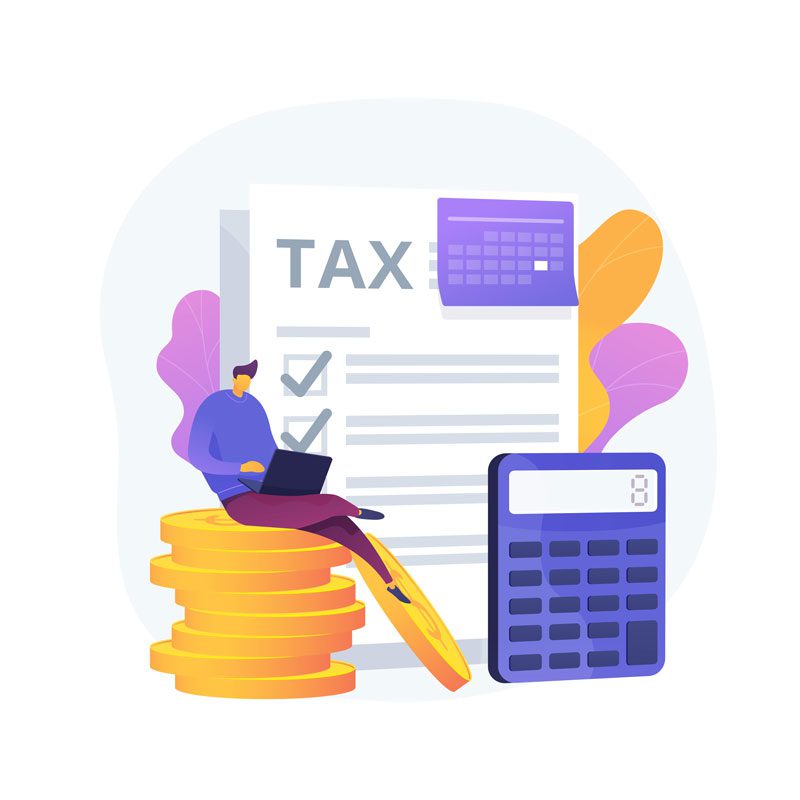“Tax” is a word dreaded by many. It usually leaves people in cold sweats and fear of high deduction of money from their salary, capital gains, profits, or whatever wealth they manage to accumulate over the year.
However, contrary to popular belief, Singapore has one of the most simplified taxation systems in the whole world. Not only do they provide citizens with clear and simplified guidelines for personal /individual tax deduction but on corporate level as well.
In this article, we will discuss how the taxation system in Singapore works. The two most important types of taxation comprise of Corporate Tax and Personal Income Tax. Let’s explore each of these in depth for better understanding of their differences.
Corporate Tax
Speaking about Corporate Income Tax filing, it is to be noted that a company is usually taxed at 17% on its chargeable income irrespective of its position as a local or foreign organization. This is arguably one of the lowest tax rates across the globe.
Furthermore, corporate taxes are usually evaluated on a preceding year basis. The “Year of Assessment ” (YA) is the year in which the corporate tax is charged with income accessible based on the preceding financial year. For example, if a company’s financial year starts from 1st June 2020 and ends on 31st May 2021, they will need to file for tax in 2022 for the income earned in the past year.
Moreover, businesses will also have to pay for the income that is Singapore sourced. That is to say that if an organization delivers Singapore-made goods to other countries, the income will still be considered as taxable regardless of the fact that the payment of the goods is made by a foreign company. This is because, the goods were originally produced in Singapore for the intention of generating corporate revenue. This is more commonly known as foreign-sourced income.
Taxation Computation Report
As tax season approaches, businesses need to submit a Taxation Computation because not all of their income is taxable. The income tax computation is primarily a report showing the tax adjustments that take into account both non-taxable income and non-deductible expenses. This helps in deriving the final amount that the company has to pay to the government.
An important point to note here is that a company is likely to pay low tax by availing the partial tax exemption and tax exemption for startups once they fulfill certain requirements to fit the eligibility criteria.
Types of Corporate Tax Returns
There are 2 types of corporate tax returns that companies needs to submit. These are elaborated as per below:
ECI – ECI stands for Estimated Chargeable Income, an estimated amount of the Company’s taxable income, after deducting tax-allowable expenses. Inland Revenue Authority of Singapore (IRAS) allows Company to waive off filing ECI for that particular YA if their annual revenue is less than S$5 million, and ECI is nil for that YA. Do note that waiver is only allowed if both criteria is fulfilled. All companies are required to file ECI within 3 months from the end of their financial year, except for companies that qualify for the administrative concession. Do note that the earlier you file, the higher the instalment you can obtain from IRAS, which will help in the Company’s cashflow of not needing to pay the estimated tax at one go. To obtain instalment payment, the Company will need to opt have GIRO payment arrangement.
Corporate Income Tax – This is due 30th November of each year.Besides,there are two types of categories in which the companies might fall into when talking about the Corporate Income Tax.
If a company is incorporated in Singapore and has revenue less than or equal to S$5 Million then that company is eligible to file Form C-S, which is a simplified Corporate Income Tax Return form. This is provided that the Company meets the following criteria of only deriving income taxable at the prevailing corporate tax rate of 17%, and is not claiming any group relief, investment allowance, foreign tax credit and tax deducted at source, or carry-back of current year capital allowances or losses in the current YA. From YA 2020 companies also have the option to file Form C-S(Lite) which is a further simplified Income tax form only having six essential fields to be completed. The criteria to file Form C-S (lite), is that the Company has to be Singapore-incorporated with annual revenue of S$200,000 or below, and has to fulfil the same criteria as Form C-S as mentioned above.
Otherwise, Companies will be required to file Form C instead.
For Form C, the company will have to submit the following documents along:
- Financial Statement
- Detailed Profit and Loss Statement
- Tax Computation
- Supporting Schedule
Notice of Assessment for Corporate Tax
IRAS will generate an Original Notice of Assessment (NOA) based on the ECI submitted by the Company. In the event where the Company did not submit ECI when they are required to, IRAS will estimate the tax payable based on their discretion and issue the Original NOA. The payment is usually due withing a month from the date of NOA, or the scheduled GIRO instalment payment, if the Company has one. Upon submission of Form C/C-S/C-S(Lite), IRAS will generate an Amended NOA to reflect the balance amount payable, or any amount to be refunded if the actual tax is lesser than the tax filed in ECI. The penalty for failing to file a tax return is up to $1000 or being called to court.
In the event where the Company does not agree with the NOA issued by IRAS, they can easily file an objection. However, this must be done within 2 months from the date of the NOA otherwise the assessment will be regarded as final. Nevertheless, the company has to pay the amount mentioned in NOA irrespective of the outcome of the objection.
There are a few things that one should keep in mind when talking about corporate taxation in Singapore. Here are a few key factors that define the Singapore Taxation System for corporations:
- Companies are not taxed on their capital gains. There is no concept of double taxation if a non-resident starts a business in Singapore. Corporate taxes don’t need to get paid in advance.
- Companies can also apply for GIRO and pay taxes in installments if they are not able to pay everything at once. Even after signing the GIRO, companies will have the option of paying all the tax at once.
- Singapore provides a lot of flexibility when it comes to financial support. This way the company owners and entrepreneurs are more focused on the growth of the business than on the frightening taxes that they have to pay.
Personal Income Tax
The personal income tax rate of an individual can be determined by finding out the tax residency and the income that needs to be filed for tax. Singapore follows a progressive structure, which means that people with higher income will have to pay higher taxes.
All individuals have to apply the progressive tax rate to the outcome of the tax residency and income that can be taxed. The tax filing date in Singapore is the 15th of April (Paper file), or 18th of April (efile) each year, make sure you don’t miss it otherwise you might have to bear strict penalties.
Residency Status
As mentioned earlier, the income tax rates in Singapore depends on an individual’s residency status. Keep reading to know what this means:
- If an individual is a permanent resident of Singapore usually known as an SPR or a Singapore Citizen or a foreigner who has stayed or worked in Singapore for at least 183 days, or a foreigner that stayed or worked in Singapore continuously for three consecutive years, or a foreigner that stayed or worked in Singapore for a continuous period straddling two calendar years and the total period of stay in at least 183 days, then he/she will be regarded as a tax resident and taxed based on the tax resident rate. The income, will be allowed for tax relief deduction, then taxed at progressive resident rate.
- If an individual does not meet these conditions, then he’ll be treated as a non-resident of Singapore and will only be taxed on all income earned in Singapore. Do note that the income will not be entitled to any tax relief deduction, and the tax rate will range from 15% to 22%. The tax rate depends on the type of income earned by the individual. (ie: employment income, director fee etc)
- The tax filing starts if an individual has an income of S$20,000 or more. However, one also has to file a tax return if they have been asked by IRAS to submit their tax returns.
Moreover, one can conveniently file their personal tax returns through the online forms provided by IRAS. The eligibility criteria to fill the form is as follows:
- Form B1 is to be filed by tax residents
- Form B2 is to be filed by self-employed individuals
- Form M is to be filed by non-resident Individuals
In case of failure to submit the tax returns on time, IRAS may take legal action against the said individual.
Notice of Assessment for Personal Income Tax
After filing the tax return forms, IRAS sends a Notice of Assessment to all those eligible for taxes. This has been calculated by assessing an individual’s income and is an amount that must be paid to the IRAS. However, in case someone disagrees with their NOA then they have the liability to file an objection against the received notice within 30 days from the due date of the bill.
Nevertheless, individuals will have to pay the full amount mentioned in the NOA irrespective of the objection filed.
Also, non-residents will have to pay tax if they fall in any of the categories mentioned below:
- If a non-resident is the director of any Singapore based company, then that individual is eligible to pay tax.
- If an individual derives income from being a professional such as a consultant, trainer, the singer then he is also eligible to pay tax.
- If a non-resident derives Income from any Singapore property, then he is eligible for tax.
Apart from this, any income received from overseas is also not taxable if it is not derived from Singapore. In other words, if an individual is a Singapore national but works in a foreign country, then whatever he earns is not taxable. On the contrary, if the person has been transferred to another country by a Singapore-based company then they are liable to file for tax.
Moreover, in case of employment, any incentives or perks provided by the employer are taxable unless they have been exempted from the income tax department. This means that benefits such as cars, health care, houses, overtime payments are all taxable.
Nonetheless, one of the biggest advantages of living in Singapore in terms of tax is that the country does not impose a tax on capital gains and has abolished the inheritance tax as well.










